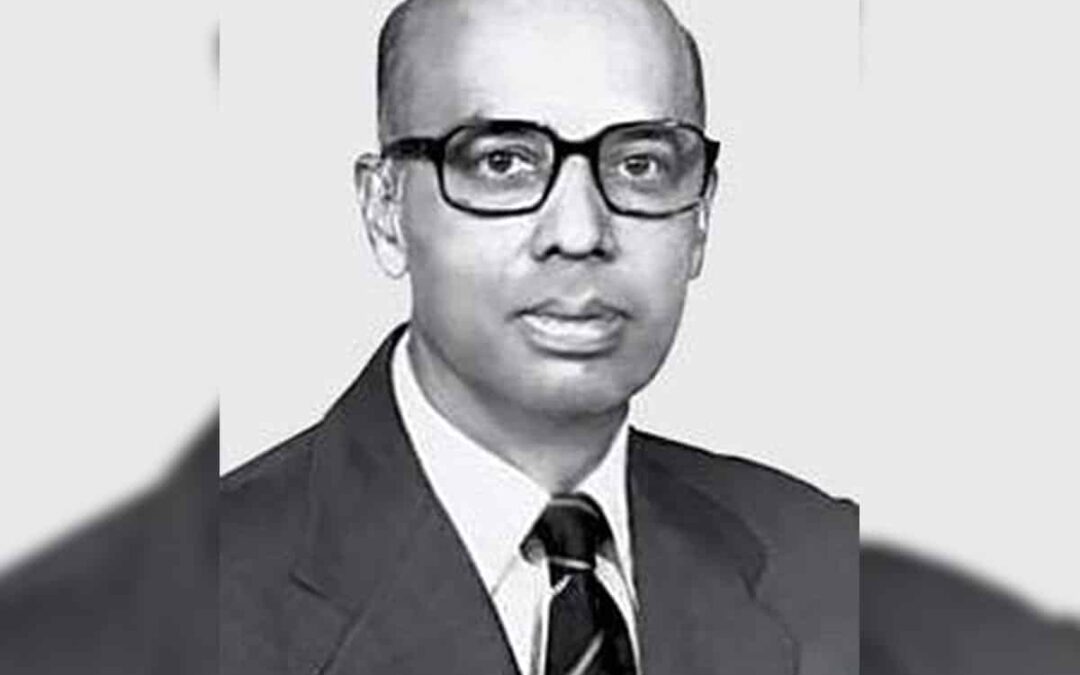In the annals of astronomy, the name Vainu Bappu shines as brightly as the celestial objects he dedicated his life to studying. Born on August 10, 1927, in Chennai, India, Vainu Bappu became one of the most prominent and influential astronomers of the 20th century, leaving an indelible mark on the field and inspiring generations of scientists.
Early Life and Education:
Vainu Bappu’s journey into the world of astronomy began at an early age. His father, Manali Kukuzhi Bappu, was an accomplished astronomer and the founder of the Kodaikanal Observatory in southern India. Under his father’s guidance, Vainu Bappu developed a fascination for the night sky and celestial objects. His childhood was spent exploring the heavens through telescopes and learning the intricacies of the cosmos.
Bappu’s educational journey took him to some of the world’s most prestigious institutions. He obtained his Bachelor of Science degree from Loyola College, Chennai, and later pursued his Ph.D. in astrophysics at Harvard University. During his time at Harvard, he worked with renowned astronomers like Harlow Shapley, contributing to groundbreaking research on the structure and evolution of galaxies.
Kodaikanal Observatory and Spectroscopy:
In 1957, Vainu Bappu returned to India and took charge of the Kodaikanal Observatory, following in his father’s footsteps. It was here that he made significant contributions to the field of spectroscopy, a technique used to analyze the light emitted or absorbed by celestial objects. Bappu’s innovative work in spectroscopy allowed astronomers to gain insights into the chemical composition, temperature, and motion of stars.
One of his most notable achievements was the development of the Bappu-Bok-Caltech (BBC) spectrometer, a cutting-edge instrument used to study the spectra of stars. This invention revolutionized the field of astrophysics, enabling astronomers to explore distant stars and galaxies with unprecedented precision.
Stellar Classification and Bappu’s Contribution:
Vainu Bappu’s research extended to the classification of stars. He played a pivotal role in refining the Morgan-Keenan system of spectral classification, which categorizes stars based on the features observed in their spectra. Bappu’s expertise in spectroscopy allowed him to identify subtle differences in stellar spectra, leading to a more accurate and comprehensive classification system.
His work on stellar classification was instrumental in understanding the properties and evolutionary stages of stars. It laid the foundation for our knowledge of stellar populations and the life cycles of stars.
International Collaboration and Legacy:
Vainu Bappu was not only a renowned scientist but also a bridge builder between Indian and international astronomy communities. He fostered collaboration between Indian and foreign astronomers, contributing to the growth of astrophysical research in India. His efforts led to the establishment of the Indian Institute of Astrophysics (IIA) in Bangalore, where he served as the founder-director.
Bappu’s legacy continues to influence modern astronomy in India and beyond. The Vainu Bappu Observatory, located near the town of Kavalur in Tamil Nadu, stands as a testament to his contributions to the field. This observatory houses several advanced telescopes and continues to conduct cutting-edge research in astrophysics.
Vainu Bappu’s life and work exemplify the power of curiosity, dedication, and passion in the pursuit of scientific knowledge. His groundbreaking research in spectroscopy and stellar classification expanded our understanding of the cosmos and left an indelible mark on the field of astronomy. Beyond his scientific achievements, Bappu’s legacy includes inspiring generations of Indian astronomers to reach for the stars and explore the mysteries of the universe. He remains an iconic figure in the history of astronomy, a true visionary who looked to the heavens and brought their secrets closer to Earth.


